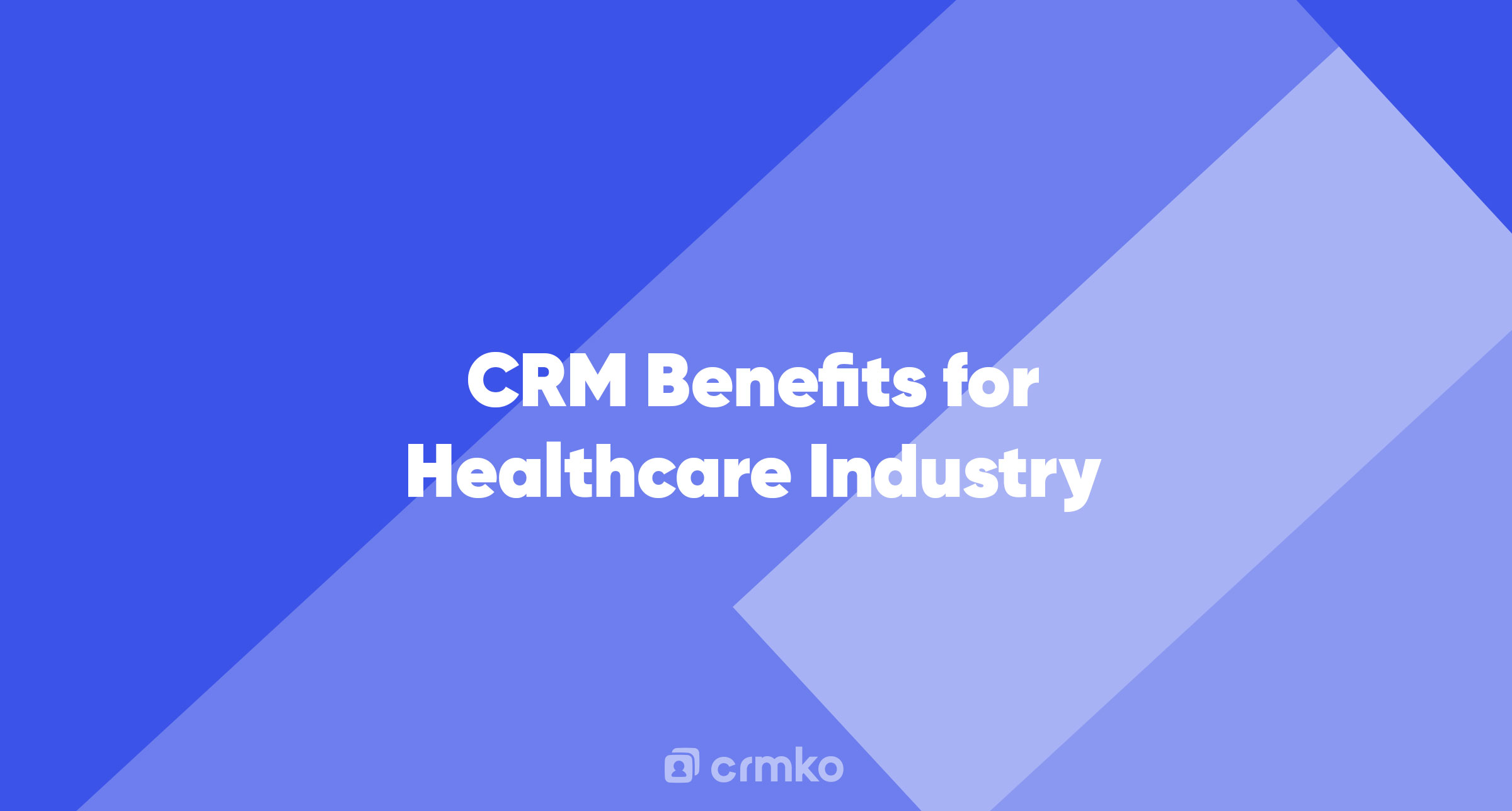Providing exceptional patient care and ensuring customer satisfaction are paramount. While advanced medical devices and skilled staff are crucial, the importance of customer experience should not be overlooked. This is where Customer Relationship Management (CRM) software comes into play. CRM software for the healthcare industry can revolutionize the way medical centers operate, streamline processes, and enhance patient satisfaction. In this article, we will explore the key benefits of implementing CRM in the healthcare industry and how it can improve customer experience and overall business success.
What is CRM in Healthcare?
CRM, or Customer Relationship Management, is a software solution designed to organize and manage customer data efficiently. In the healthcare sector, CRM software helps medical centers collect and store patient information, streamline communication, and optimize various aspects of patient management. Similar to CRM platforms used in sales and marketing, healthcare CRM software encompasses several standard features tailored specifically to the industry.
Communication Tools
Effective communication is essential in any healthcare setting. CRM software for the healthcare industry allows medical centers to schedule, initiate, and monitor communication with patients. It simplifies appointment setting and ensures that both patients and healthcare providers have a smooth and seamless experience.
Work Management
Managing daily tasks and assignments is crucial for efficient healthcare operations. CRM software enables employees to assign tasks, track progress, set deadlines, and update work statuses. This helps streamline workflows, improve collaboration, and ensure that all tasks are completed in a timely manner.
Reporting and Analytics
Analytics is a powerful tool for understanding business dynamics and making informed decisions. Healthcare CRM software includes reporting and analytics features that allow users to generate personalized reports, track the return on investment (ROI) of marketing campaigns, and gain valuable insights into patient trends and behaviors.
Patient Management System
One of the key benefits of healthcare CRM software is its ability to manage patient data effectively. The system allows healthcare providers to create, update, and segregate patient records based on specific criteria such as diseases, conditions, feedback, or other factors. It ensures that sensitive patient information is securely stored and in compliance with data protection regulations, such as HIPAA.
The Advantages of CRM Software in Healthcare
Implementing CRM software in the healthcare industry offers numerous benefits that can significantly improve customer experience and business outcomes. Let's explore some of the key advantages of using CRM software in healthcare settings:
Fast and Efficient Communication
In a competitive healthcare environment, prompt communication is crucial for patient satisfaction. CRM software enables healthcare providers to respond quickly to patient inquiries, schedule appointments efficiently, and provide timely updates and reminders. By leveraging the power of CRM software, healthcare centers can enhance their communication processes and ensure that patients receive the care they need without unnecessary delays.
Streamlined Billing Operations
Managing billing operations can be a complex and time-consuming task for healthcare organizations. CRM software simplifies the billing process by gathering and updating patient payment information. Integrated analytics tools provide real-time insights into billing transactions, allowing healthcare providers to track payments, send payment reminders, and streamline their financial operations.
Efficient Data Management and Reporting
Maintaining accurate and up-to-date patient records is essential for providing quality healthcare services. CRM software for the healthcare industry centralizes patient data, making it easily accessible to healthcare staff across the organization. This streamlines administrative processes, reduces errors, and improves overall data management efficiency. Additionally, CRM software enables healthcare providers to generate reports and metrics that provide valuable insights into patient retention, average duration of stay, and other important metrics.
Enhanced Data Security
Data security is a significant concern in the healthcare industry, given the sensitive nature of patient information. CRM software helps improve data security by encrypting confidential data and allowing system administrators to set access levels and permissions. Cloud-based CRM solutions offer additional security measures by backing up data, ensuring that critical information remains accessible even in the event of a system failure or natural disaster.
Improved Customer Experience
In today's consumer-centric world, delivering personalized experiences is crucial for customer satisfaction. CRM software enables healthcare providers to offer tailored services and personalized care to their patients. By having access to a comprehensive patient history, healthcare professionals can provide more personalized treatment plans, medication reminders, and targeted healthcare recommendations. This level of personalized care enhances the overall patient experience and fosters long-term patient loyalty.
Conclusion
In conclusion, implementing CRM software in the healthcare industry can bring numerous benefits and revolutionize the way medical centers operate. By streamlining communication, optimizing workflows, and enhancing data management, CRM software improves customer experience, increases operational efficiency, and drives business success. As the healthcare industry continues to evolve, embracing CRM technology is becoming increasingly essential for healthcare providers who want to stay ahead of the curve and deliver exceptional patient care. With the right CRM solution, healthcare organizations can transform their operations, improve patient satisfaction, and achieve sustainable growth in today's competitive healthcare landscape.
